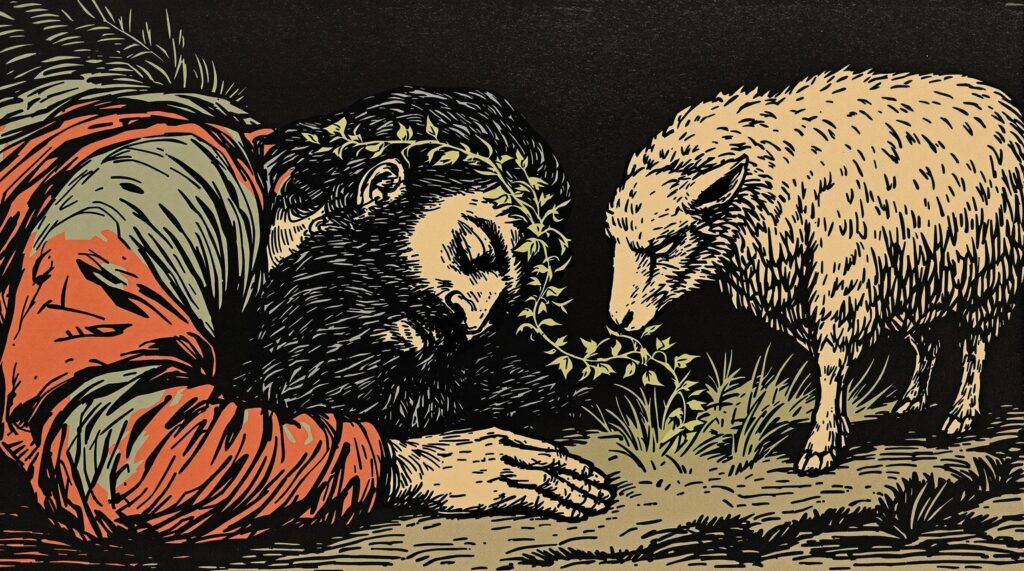In this chapter, Zarathustra reflects on his departure from the scholarly world and offers a critique of scholars and their approach to knowledge.
The narrative begins with a metaphorical scene where Zarathustra recounts a dream: while he slept, a sheep ate the ivy wreath from his head and remarked, “Zarathustra is no longer a scholar”. The sheep then departed stiffly and proudly, and a child relayed this incident to Zarathustra.

As I lay sleeping, a sheep ate at the ivy-wreath on my head – it ate and said: ‘Zarathustra is no longer a scholar.
Zarathustra then expresses his contentment in residing where children play, near a broken wall amidst thistles and red poppies. To the children and the natural world, he remains a scholar—they are innocent, even in their mischief. However, he acknowledges that to the sheep (symbolizing the conventional scholars), he is no longer considered one of them, which he accepts as his destined path and blesses it.
Zarathustra criticizes the scholars for their detached observation, stating they sit coolly in the shade, preferring to be mere spectators rather than participants, avoiding the places where the sun burns hottest. He compares them to onlookers who stand in the street, gawking at passersby—in this case, waiting to observe thoughts conceived by others. When confronted, they react defensively, much like flour sacks emitting dust, unintentionally revealing their origins connected to the fertile joy of summer fields.
He finds their wisdom disconcerting, filled with terse sayings and minor truths that carry an unpleasant odor, as if emanating from a swamp. They are skilled and dexterous, adept at threading, knotting, and weaving—their fingers crafting the “stockings of the spirit”. He likens them to well-made clockworks that, once properly wound, tell time accurately and make a modest noise.
Further, Zarathustra depicts them as millworks that grind grains into fine flour when provided. They are cautious, meticulously watching each other’s actions, inventively sly, and patiently awaiting those whose knowledge advances slowly—much like spiders awaiting their prey. He observes them preparing poison with care, always donning glass gloves to protect themselves, and playing with weighted dice so fervently that they perspire from the effort.
Zarathustra notes that their virtues are more distasteful to him than their deceit or dishonest practices. During his time among them, he lived above them—a fact that incited their resentment. Unwilling to acknowledge anyone surpassing them, they placed barriers of wood, earth, and refuse between themselves and Zarathustra to muffle his footsteps, ensuring that even the most learned among them would barely perceive his presence.
They interposed every human fault and weakness between themselves and him, referring to this barrier as a “false floor” within their dwellings. Regardless, Zarathustra continues to traverse above their heads with his thoughts. Even if he were to walk upon his own failings, he asserts he would still remain above them.
Concluding his reflection, Zarathustra emphasizes that humans are not equal. He asserts that what he desires is beyond their capacity or willingness to aspire.
